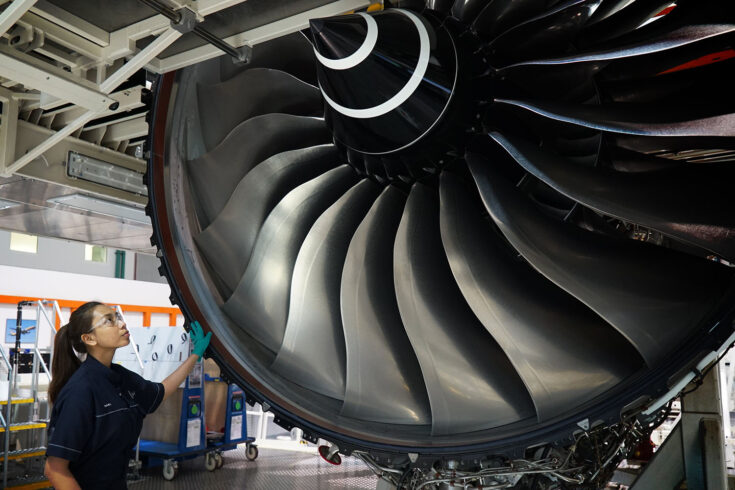I’ve recently been appointed as chair of the newly formed Engineering and Physical Sciences Research Council (EPSRC) Energy and Decarbonisation Strategic Advisory Team (SAT). It’s such an exciting role, and a real privilege to be able to be part of this strategic activity.
At our first meeting we discussed many things, but a particular passion is how we organise career progression. For me this was particularly pertinent as much of my career progression has been the result of EPSRC investment. Long-term projects, such as Supergen and the UK Energy Research Centre provide platforms for transformative research and some stability for research progression and development.
As I reflected, I realised that over the years I have been part of five Supergen projects! As a postdoctoral researcher, I was involved in Highly Distributed Power Systems, moving on to Highly Distributed Energy Futures and then onto Supergen Bioenergy Hub projects as an academic investigator. As a systems person I contributed to understanding the greenhouse gas impact and integration of wind, solar and biobased systems.
Building a sense of community
Being part of big research projects from an early stage really helped me develop my research approach, building up a sense of community but also really challenging my thought processes and methods. Right from the beginning of my PhD, I regularly presented my work to national and international academics as well as business and community leaders.
Although sometimes daunting, being able to see the impact of my research in relatively short timescales is really exciting! People often depict an academic as someone working away in a lonely lab or office – but this has never been the case for me.
Recently I’ve moved away from the Supergen projects, but I’m still working on big, collaborative projects. These include industrial decarbonisation (Industrial Decarbonisation Research and Innovation Centre) and manufacturing (Cellular Agriculture Manufacturing Hub, People led Digitalisation, and more) but at its core my research remains the same – working out the impact of what we do, and what we anticipate doing. Doing this, with as many diverse colleagues as we can possibly find, is the only way in which we will begin to tackle the issues surrounding us as a result of climate change and nature depletion.
The path isn’t always smooth
My story is not unique. When I look around, even in the SAT, lots of my colleagues across the UK have been developed by UK Research and Innovation (UKRI) investment, particularly Supergen, in the same way. Long term investments in areas have enabled real step changes in our ability to power the future and embed research into industry and policy. Long term investment has also enabled numerous academic leaders in this area.
But the path isn’t always smooth. Precarious postdoctoral contracts are still difficult to navigate, and it is hard to ensure the long-term funding to keep the brightest and the best. It’s always sad to lose a researcher who wants to stay, but for whom the uncertainty on the next funding is too much.
This is not something any one call or one university can solve alone and requires a sector shift. However, it’s also important to note, that movement between industry and academia is critical to success and real transformative change – which is what is needed in our sector.
More needs to be done
As a female in engineering our path can sometimes be even more difficult. During our first SAT meeting I was alerted to the fact that that the number of women working in, and coming into, engineering and tech had dropped recently. Given the effort many of us are putting into changing the ratio, this is extremely disappointing.
A recent survey from the Institution of Engineering and Technology showed that women are being put off careers in this industry by male dominance and that girls aren’t being encouraged enough to think about a career in science, technology, engineering and maths (STEM). Potentially most concerning (to me at least) is that only 8% of those surveyed could name any woman who had made a significant contribution in STEM.
The concept of ‘Hidden Women’ isn’t new. There are lots of places you can find information about the contribution women have made, including summaries, films and books. The amazing work being done by Jess Wade is increasing the visibility of women in STEM. Yet it is clear that there is so much more that needs to be done.
Delivering change
A quote that often springs to my mind is, “it’s better to light one candle than to forever curse the darkness”. I believe this has to be the mantra for those of us who have come into some leadership positions in this area. In order to deliver the changes we need to mitigate the worst effects of climate change and to produce real regenerative solutions with a focus on nature, long term sustainability and value creation, we need to embrace diversity in all our questions and solutions.
When I look at Supergen, although I don’t have the detailed statistics, it strikes me that we have a slight difference to the norm in our data for gender. You can see from UKRI and EPSRC figures that the number of female investigators is relatively low across the board. This is both for application and success rates, and about 16% of award holders overall are female.
It’s small numbers, and so statistically not viable, but in Supergen I see different patterns. There are long standing female leaders and leadership development is clear. Is this because of the recurring nature of the awards? Is it because of the subject type? Or is it because where you begin to see the change and a more diverse leadership – a wider diversity of people feels comfortable?
In my new role as SAT chair this is something I know we’ll be exploring and discussing as part of an ongoing drive to improve diversity in energy and decarbonisation – because if we don’t have it, we won’t succeed. And this is too much of an important area to fail in.



